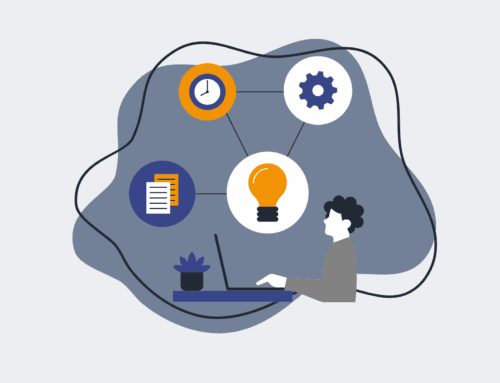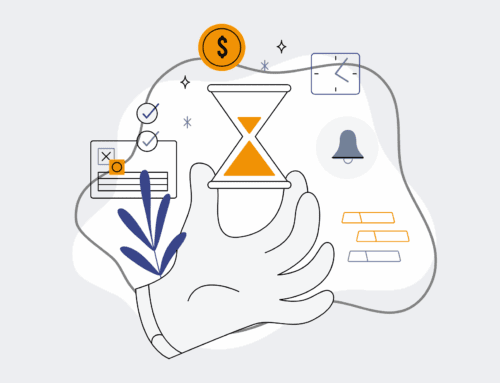CRM Migration as a Catalyst for Digital Transformation: Beyond the Technical Upgrade
In today’s competitive landscape, businesses are constantly seeking leverage, looking for ways to not just keep pace but to surge ahead. Often, the conversation around CRM migration is confined to technicalities—data transfer, system integration, downtime. Yet, this perspective misses a profound opportunity. At 4Spot Consulting, we view CRM migration not merely as an IT project, but as a strategic inflection point, a potent catalyst for genuine digital transformation that can redefine operational efficiency and drive significant revenue growth.
For too long, companies have settled for CRMs that merely track interactions, rather than actively enhancing their business processes. A migration offers the rare chance to step back, re-evaluate, and design a system that truly serves your strategic goals. It’s an invitation to shed legacy constraints and embrace a future where your CRM is a dynamic, intelligent hub for all your customer-facing and back-office operations.
Re-imagining Your Operational Core: From Data Silos to Unified Insights
Many organizations operate with a patchwork of systems—sales, marketing, customer service, HR, and finance all running on disparate platforms. This creates data silos, hindering a holistic view of the customer and breeding inefficiencies. A CRM migration, when approached strategically, becomes the perfect opportunity to dismantle these silos and establish a “single source of truth.”
We’ve seen firsthand how merging CRM data with other critical business systems—think HR platforms for recruitment, accounting software for invoicing, or project management tools—transforms how teams operate. It’s about more than just moving data; it’s about cleaning, enriching, and standardizing it so that every department benefits from accurate, real-time insights. This unification, guided by our OpsMesh™ framework, ensures that your new CRM isn’t just a new tool, but the intelligent backbone of your entire enterprise, capable of feeding and being fed by all relevant data streams. This level of integration is paramount for businesses aiming to reduce human error and boost scalability.
Driving Efficiency and Eliminating Bottlenecks Through Smart Automation
The true power of a modern CRM, especially post-migration, lies in its capacity for automation. Digital transformation isn’t just about digitizing existing manual tasks; it’s about optimizing them, often through intelligent automation that reduces low-value work for high-value employees. A well-executed CRM migration allows you to bake automation into the very fabric of your customer journey.
Consider the process of lead nurturing. Instead of manual follow-ups, your new CRM can automatically qualify leads, segment them based on behavior, and trigger personalized communication sequences. Or, in HR and recruiting, imagine automating resume parsing, interview scheduling, and even initial candidate screening directly within your CRM environment, as we’ve achieved for numerous clients. This isn’t just about saving time; it’s about consistent, error-free execution that scales effortlessly. With tools like Make.com at our disposal, 4Spot Consulting specializes in connecting your new CRM to dozens of other SaaS systems, building intricate workflows that eliminate bottlenecks and free up your team to focus on strategic initiatives rather than repetitive tasks.
The Strategic Imperative: Beyond a Simple Lift and Shift
Many businesses approach CRM migration as a mere “lift and shift” operation, moving data from one platform to another without questioning the underlying processes. This is a missed opportunity. A successful migration should be preceded by a thorough strategic audit—what we call an OpsMap™.
During an OpsMap™, we work with leadership to uncover inefficiencies, identify automation opportunities, and map out a future state where the CRM truly supports and accelerates business objectives. This deep dive ensures that the migration isn’t just a technical task, but a strategic redesign. We ask critical questions: What bottlenecks currently exist? Where are human errors most prevalent? How can the new CRM empower better decision-making and enhance the customer experience? Only by addressing these foundational questions can a migration genuinely serve as a catalyst for transformation, leading to tangible outcomes like improved lead conversion rates, faster sales cycles, and more satisfied customers.
Mitigating Risks and Ensuring Data Integrity: The 4Spot Difference
Migrating a CRM, especially for businesses with high-value, sensitive data, inherently comes with risks. Data loss, corruption, and system incompatibility are legitimate concerns. This is precisely why a partnership with experts like 4Spot Consulting is critical. Our “OpsBuild™” phase emphasizes meticulous planning, secure data transfer protocols, and rigorous testing.
Our expertise extends to vital areas like CRM & Data Backup, particularly for platforms like Keap and HighLevel, ensuring business continuity and data integrity throughout the entire process. We don’t just migrate; we optimize for future resilience, ensuring your data is not only moved but also protected and easily recoverable. Our strategic-first approach means we plan extensively before we build, minimizing disruption and maximizing the ROI of your investment. This isn’t theoretical; we have a track record of enabling 240% production increases and achieving $1M+ annual cost savings for our clients by orchestrating these complex transformations.
Ultimately, a CRM migration is more than an upgrade; it’s a commitment to continuous improvement and digital maturity. It’s an opportunity to save 25% of your day by eliminating manual work, empowering your teams with better data, and creating a scalable, future-proof operational backbone. It’s about transforming your CRM from a static record-keeper into a dynamic engine of growth.
If you would like to read more, we recommend this article: Your Guide to Secure HR & Recruiting CRM Migration with CRM-Backup









